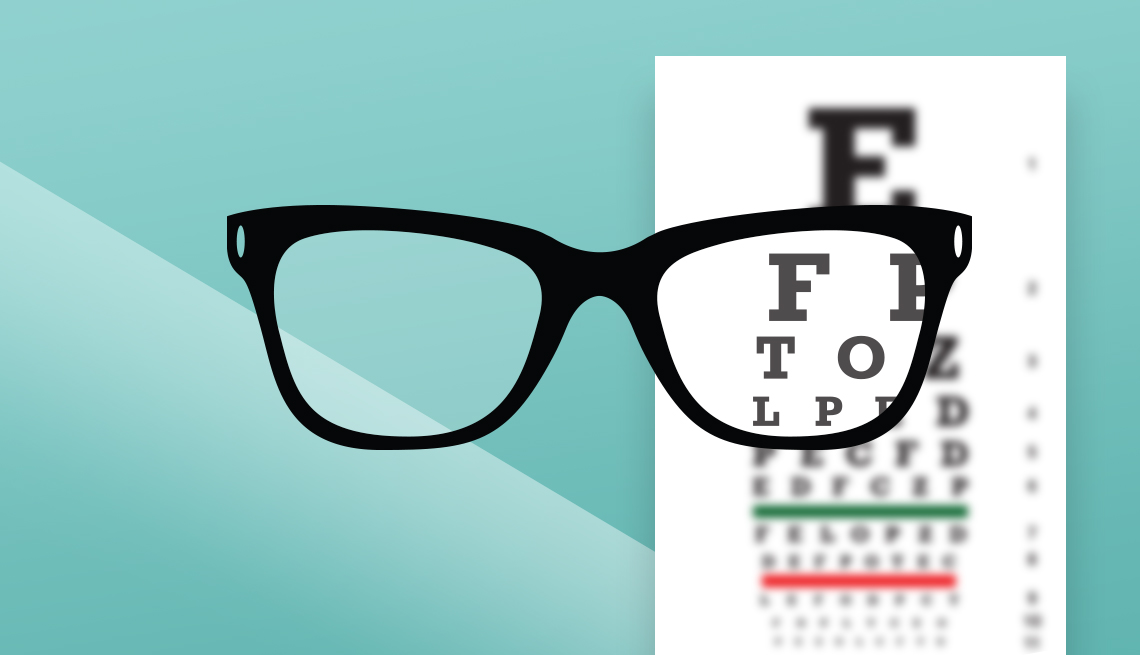Andalusia Pediatrics: Exceptional Take care of Children's Health Requirements
Andalusia Pediatrics: Exceptional Take care of Children's Health Requirements
Blog Article
Is Refractive Surgical Treatment Right for You? Variables to Consider for Better Eyecare
In the world of eye treatment, the decision to undertake refractive surgical treatment is a significant one that demands thoughtful consideration. From the details of one's eye health to the complexities of individual assumptions and everyday routines, each element holds importance in the wider landscape of refractive surgery candidacy.
Eye Wellness Examination
When considering refractive surgery, a thorough eye wellness assessment is important to evaluate the suitability of the treatment for each person. neurologist andalusia. This analysis includes a series of examinations and assessments carried out by an eye care specialist to figure out the overall wellness of the eyes, the presence of any kind of underlying conditions, and the security of the refractive error
Throughout the evaluation, various factors are taken right into account, such as the client's case history, current eye prescription, corneal thickness, student dimension, and tear film high quality. These analyses help to identify any kind of contraindications to refractive surgical procedure, such as corneal problems, cataracts, or unattended eye infections. In addition, the evaluation aids to handle individual assumptions pertaining to the potential results of the surgery based on their one-of-a-kind eye qualities.
Ultimately, the eye health and wellness examination is crucial in guaranteeing the security and performance of refractive surgery, as it provides important insights into the individual's eye health and wellness status and assists identify the most ideal treatment options for attaining ideal aesthetic outcomes. (andalusia pediatrics)
Way Of Living Assessment
A thorough way of living analysis is essential in establishing the suitability of refractive surgical procedure for an individual's visual adjustment demands. Way of life elements such as line of work, hobbies, and daily activities play a crucial function in the decision-making process pertaining to refractive surgery. For example, people with professions that entail a high level of exercise or exposure to ecological elements may have various aesthetic needs compared to those with less active workdesk work. Recognizing exactly how an individual's way of living may influence their vision post-surgery is essential for managing assumptions and ensuring optimal outcomes.
Moreover, way of living routines such as sporting activities engagement, outside activities, or even skincare routines can influence the recovery procedure and general success of refractive surgical procedure. By performing a detailed way of life assessment, eye treatment professionals can customize their recommendations and therapy strategies to meet the special demands of each individual, inevitably leading to improved aesthetic end results and contentment.
Expectation Placement

Establishing reasonable expectations entails thorough pre-operative conversations in between the ophthalmologist and the client. The cosmetic surgeon needs to transparently communicate the possible dangers, benefits, and limitations of the procedure (neurologist andalusia). Patients need to understand that while several people achieve 20/20 vision or better following refractive surgery, some may still need glasses for sure tasks like analysis or driving at evening. Taking care of these assumptions aids protect against frustration and dissatisfaction post-surgery, resulting in a more positive total experience for the individual.
Risk Evaluation

Factors that may enhance the danger of complications include age, particular clinical problems like autoimmune conditions, unpredictable vision prescription, slim corneas, and unrealistic individual expectations. Furthermore, selecting a skilled and seasoned doctor, following pre and post-operative care guidelines carefully, and divulging any appropriate clinical background can assist mitigate threats.
To reduce the possibility of complications, eye doctors conduct complete pre-operative assessments to identify any type of contraindications to surgical treatment. They also discuss the prospective threats and advantages with individuals during the examination procedure. By engaging in open interaction and shared decision-making, both the patient and the eye doctor can interact to establish if refractive surgical treatment is the right selection based upon specific risk accounts and preferred end results.
Assessment Relevance
Taking into consideration the critical role of educated decision-making in evaluating threats and potential issues in refractive surgery, the assessment process holds significant importance in directing patients in the direction of optimal results. Throughout the examination, the ophthalmologist examines the person's eye wellness, refractive mistakes, and total suitability for surgical procedure. This preliminary assessment is essential in figuring out the most appropriate treatment for each individual, taking into account elements such as corneal thickness, student dimension, and existing eye problems.
Moreover, the appointment acts as a chance for individuals to discuss their expectations, worries, and any concerns they might have concerning the surgical treatment. Clear communication between the specialist and the client is important to guarantee realistic expectations and a comprehensive understanding of the prospective risks and advantages included.
In addition, the assessment enables the surgeon to clarify the various medical options offered, their respective results, and the post-operative care called for. This thorough discussion empowers people to make well-informed Visit This Link decisions about their eye care, bring about better satisfaction and end results post-surgery.
Verdict
To conclude, people taking more information into consideration refractive surgical procedure ought to go through a comprehensive eye health and wellness evaluation, assess their lifestyle practices, straighten their expectations with potential outcomes, assess the connected risks, and prioritize consultations with eye treatment specialists. These factors play an essential duty in determining the viability of refractive surgical procedure for each and every individual, making certain optimum end results and satisfaction with the procedure.
Individuals taking into consideration refractive surgical treatment typically have high assumptions relating to the end results, expecting excellent vision without the requirement for glasses or contact lenses. While refractive surgery can substantially improve vision and reduce reliance on aesthetic help, it is crucial for clients to recognize that outcomes might differ based on individual elements such as the degree of refractive mistake, corneal density, and general eye wellness.
By engaging in open interaction and shared decision-making, both the patient and the eye doctor can function together to figure out if refractive surgical treatment is the ideal selection based on specific risk accounts and desired end results.
Considering the critical function of educated decision-making in examining dangers and prospective complications in refractive surgical procedure, the consultation procedure holds significant importance in assisting individuals in the direction of optimum outcomes. During the appointment, the eye doctor examines the individual's eye health, refractive errors, and overall suitability for surgery.
Report this page